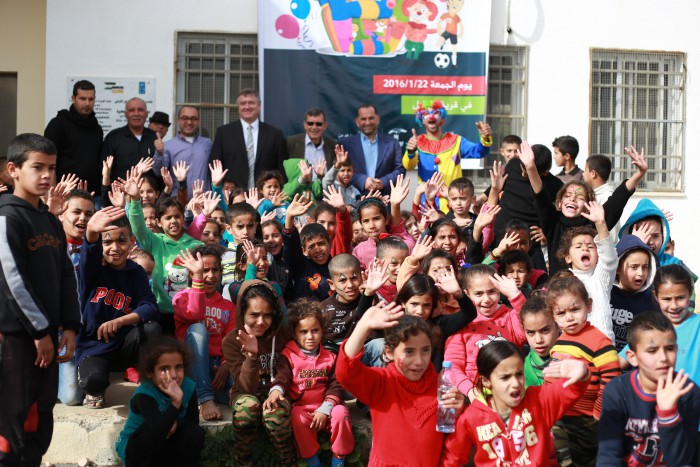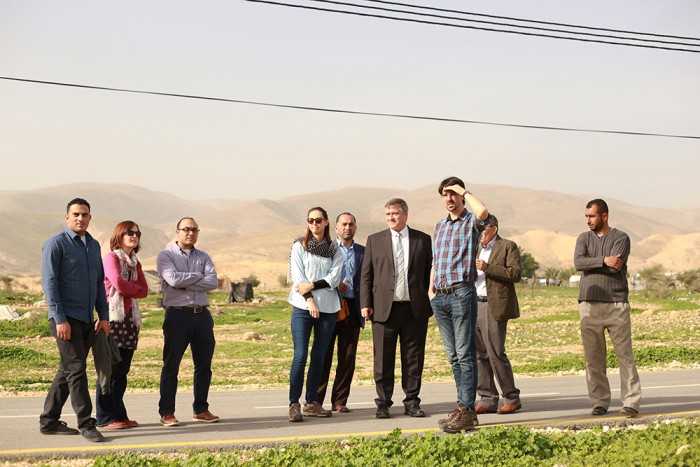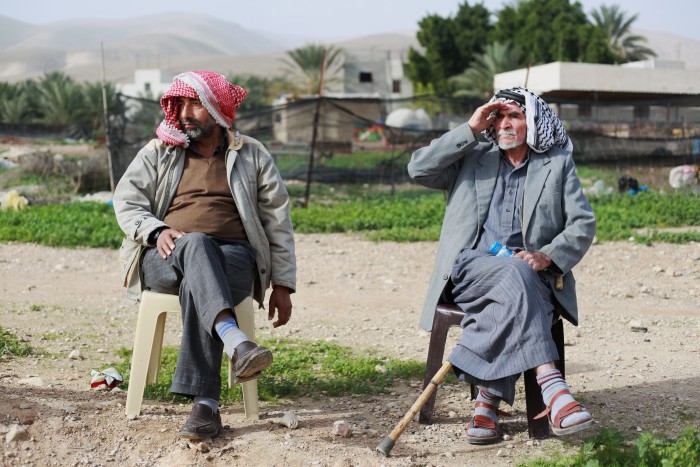26th January 2016 Jerusalem, Israel
We must not forget Area C

It has been another hard year for the community of Fasayil. Located in Area C of the West Bank, the community faced the demolition of 17 structures last August. The demolitions left 48 people without homes. Like other communities in Area C, Fasayil’s farmers face severe restrictions on access to farmland and irrigation. The village’s growth is hindered by building restrictions.
That is why I started this New Year by visiting Fasayil with a team from the Consulate-General. We met the community to hear about the problems they face. We played football and organised activities for the children, to demonstrate our belief that Area C should be a place where Palestinian communities can live ordinary lives. Where they can farm, build and play football.

We also believe that Area C must be an integral part of a future Palestinian state. It is key for Palestinian economic development. It is necessary for free movement and access for Palestinians throughout the West Bank. And its olive trees, rolling hills and small villages symbolise much of Palestinian national identity and culture.
This is why the UK is working on the ground to protect Palestinian communities living in Area C, and to help them plan for a better future.

Firstly, we are protecting the rights of Palestinian families to their land and homes. We provide Palestinian communities with legal assistance to challenge demolitions of private property, forced displacement of villages or Bedouin communities. Our NGO partners are helping Palestinians living in villages such as Susiya in the South Hebron Hills to continue living in their homes.
In addition, we are supporting communities facing the threat of settler violence. In 2015, we supported 16 vulnerable communities living near settlements during the olive harvest. As well as standing alongside them during this important time of year, we helped over 500 Palestinian farmers with tools and equipment to harvest their olives.

Secondly, we are supporting economic development in Area C. The UK has helped 100 farming families, by rehabilitating wells and irrigation pipes through the Food and Agriculture Organization (FAO). The project has enabled Palestinian farmers to produce more crops, helping them financially and allowing them to continue to cultivate their agricultural lands.
Finally, we are helping Palestinian communities in Area C to plan for the future. We are working with UN Habitat, the Ministry of Local Government and community organisations to help them develop outline plans. These plans are owned by the local communities. We hope they will open up opportunities for these communities to drive their own development in the long-term.
As I’ve travelled around the West Bank I’ve heard from ordinary Palestinians about the challenges they face in Area C – farmers harvesting olives fearing settler violence, Bedouin communities facing displacement and hard-working people fearing demolition of their homes. This is why I care deeply that we continue to protect these vulnerable communities. And in the longer-term, we are working to help open the way to genuine development for Area C. Because we know that the people of Fasayil, and other villages in Area C, deserve to have a better, brighter future. And they deserve the same opportunities as anyone else – to use and develop their land, free from the constraints of Occupation.
Are we participating in hurting these people, the mobile clinics run by the local NGOs (PMRS and HWC) were interrupted twice since the Israeli right wingers called for the annexation of these areas. Since 31.11.2015 there were no health services coverage because of shortages of funds from the donor countries. Was it planned or a simple coincident that the mobile clinic serving in area c was stopped in this critical time?
Dear Mr McPhail,
The latest report sounds like a real positive step for this community.
I’m concerned about hearing instances of settler violence and in some cases being supported by the IDF. I’m assuming that you and your team are taking all necessary precautions in this regard in order not to provoke the settler movement into reacting and / or the IDF to demolish and having to re-start over again…
The Occupied Territories are governed by Military law and I’m hoping that the system in place and the decisions being taken by the courts are equitable….
Regards
Mark